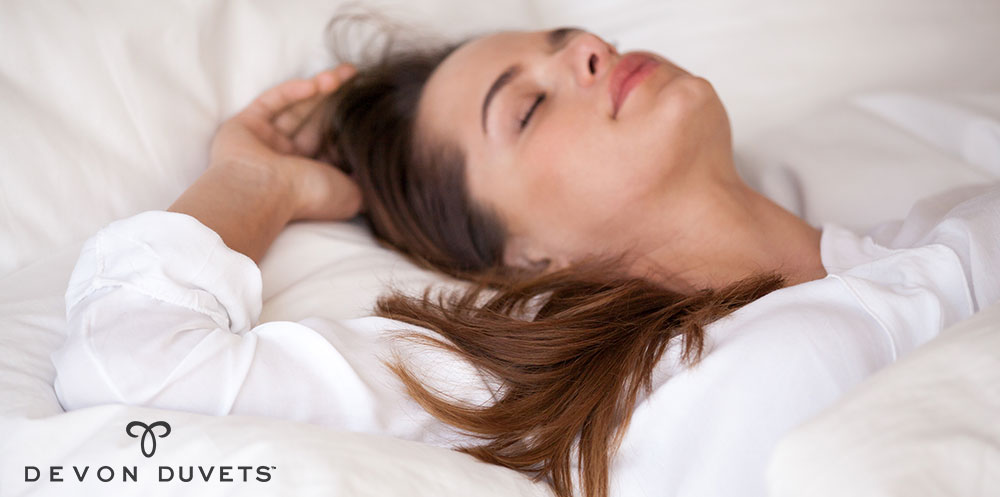Tips to reduce eczema nighttime flare ups

What is eczema?
Eczema is a non-contagious, inflammatory dry skin condition that can affect people of all ages. The most common form, atopic eczema, affects 1 in 10 adults in the UK. Symptoms can often get worse once a person has gone to bed and this can interrupt sleep. The temptation to scratch makes the symptoms worse and leads to cracked skin. Additionally, those that suffers from eczema can also suffer from asthma, triggered at night by dust mites and their droppings.
Why does eczema flare up at night?
There are several factors that can cause this. Humidity plays a major role – too much can exacerbate the itchiness, so it is important to keep it at a comfortable level. We all lose moisture when we are sleeping but if sweat is unable to evaporate then it creates too much humidity. Dust mites also thrive on humid air, which can make eczema and asthma worse. Stress and anxiety can be triggers and, in addition, people are more likely to scratch their skin whilst they sleep.
So how can I help prevent eczema itching at night?
The best way is to avoid triggers, such as dust mites or pet dander. Other irritants can include soaps and lotions that contain fragrances, cigarette smoke and household cleaners. The following tips may also help.
Moisturise well before bed: Use oil-based moisturisers or your doctor may prescribe a specific cream. If you are showering or having a bath before bedtime, remember to moisturise straight afterwards to ensure you are locking in hydration.
Avoid synthetic fabrics: Sheets, filled bedding and nightclothes that are made from synthetic fabrics as these tend not to be breathable and so will create humidity. Always opt for 100% cotton or other 100% natural fabrics. Duvets that are filled with natural fibres, such as wool, are temperature regulating. Maintaining a balanced temperature whilst you sleep will lessen the chances of itching being triggered by sudden temperature changes or trapped heat. Wool is also moisture wicking, so will help to keep humidity down - and is also dust mite resistant. Do make sure that if you purchase a wool filled duvet that the casing is made from a high-quality cotton and not a poly/cotton blend. Our wool duvets are individually handcrafted, here in Devon, using authentic traceable 100% British wool that has not been washed with chemicals, and we only ever use 100% cotton for our casings. Find out more about our wool duvets here.
Keep your bedroom cool: Sweating and feeling hot can make the skin itchier. Your bedroom should be cool – but not cold. Generally speaking, the best bedroom temperature for sleep is between 16c° - 18c° degrees.
Get into a good sleep pattern: Try to go to bed at the same time each night and make time for a relaxing activity, such as reading a book, or meditation before going to sleep.
Wear gloves to bed: This makes it more difficult to scratch. Keeping fingernails short can also help. Make sure the gloves are made from a natural material, such as cotton.
Your GP will be able to offer advice about medications and creams that can help relieve the symptoms of eczema.


